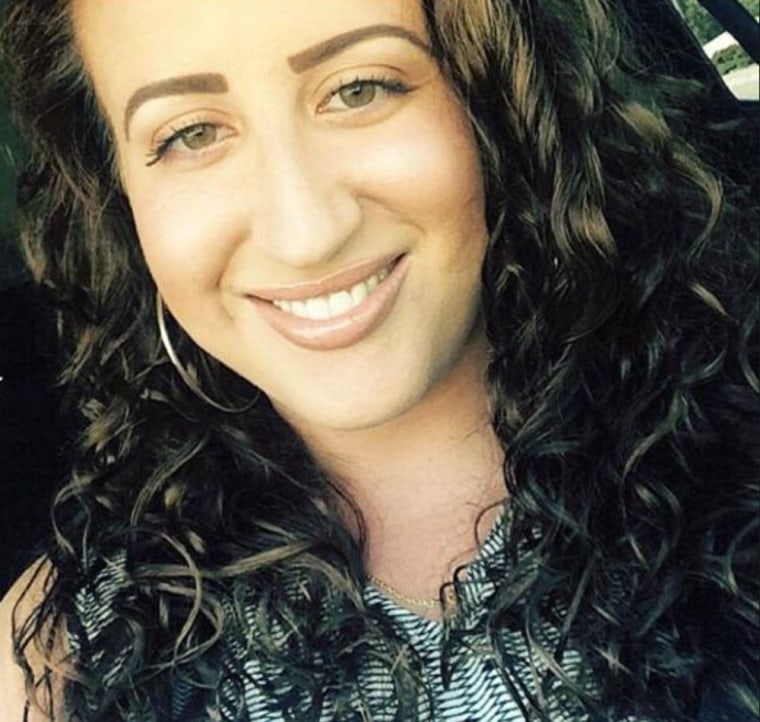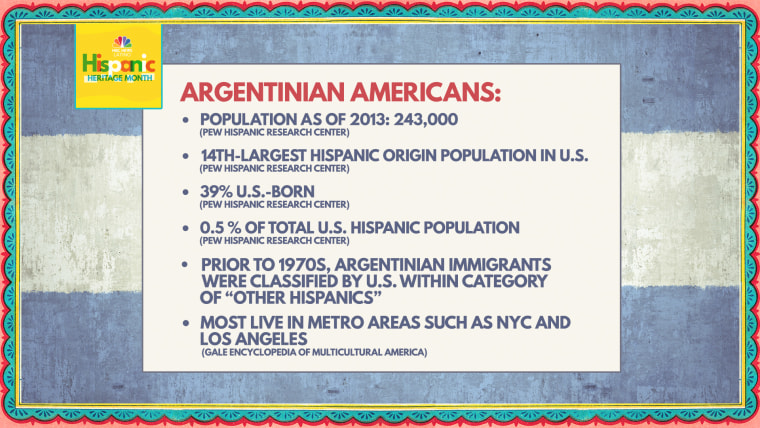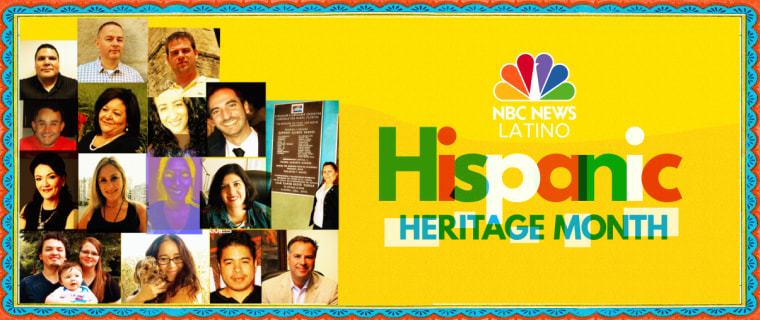This is part of our Hispanic Heritage Month series, "Our Latino Heritage," where we are profiling a U.S. Hispanic from each of our Spanish-speaking Latin American and Caribbean homelands.
Like many immigrants from Argentina who came to the United States in the mid-to-late 70's, Sasha Pisterman's parents fled their country because of the economic and political uncertainty of the "Dirty War," during which the Argentine Military Government hunted down those thought to be associated with socialism.
"Both of my parents were from Buenos Aires - my mother was a lawyer and my father owned his own record store - and they gave up everything to come here, to Los Angeles," Pisterman said. "My father's brother had already come out here and shortly after he arrived my father became a record executive at major record label and then eventually started his own record label," said Pisterman, who has followed in her father's music business footsteps and works in entertainment publicity.

"It was interesting for me because my first language was Spanish and I grew up in a very Argentinian household, and at first we were not very Americanized," Pisterman recalled.
"I remember having to fill out some forms once and when it came to marking the demographics it was like, 'Do we mark 'Hispanic'? Do we mark 'White'?
"In Argentina there are whites, blacks, Asians and if you have European ancestry you're white - but no, in this country we're Latino, not white," Pisterman said.
And like many other Hispanics who are not of Mexican descent, she found herself taking on the role of cultural ambassador.
"Yeah, growing up I had to explain to people - even to other Latinos - that, yes, we have a different accent and different words, but I am still Latina. But that wasn't a barrier or anything, I felt connected to the community. I'd say a majority of my friends were Mexican and Salvadoran."

One good thing about coming into contact with someone who doesn't know much about Argentina - or about the snarkiness that sometimes taints relations between descendants of certain Latin American countries - is not having to overcome the stereotype that Argentines are "snooty."
It is a criticism most likely rooted in the fact that, according to the Gale Encyclopedia of Multicultural America, the majority of the early Argentinean immigrants who came to the U.S. during the 1960's were well-educated professionals, including a substantial number of medical doctors and scientists.
"Growing up I had to explain to people - even to other Latinos - that, yes, we have a different accent and different words, but I am still Latina...But that wasn't a barrier or anything - a majority of my friends were Mexican and Salvadoran."
"I've heard the stereotype a lot but I don't think I was like that, I know my family was not like that," Pisterman said. "From what I've heard people say, they think that because we have lighter skin they say that we try to act white, but every Argentinian I know is very proudly Argentinian - we all speak Spanish and when World Cup comes around we all cheer for Argentina."
"But really, I see myself as Argentinian-American because I have an Argentinian identity ingrained in me and yet I was born and raised here. So I do have the American culture as well. And when I go back to visit, to them, I'm a 'gringa.'"
Pisterman lives her life looking more closely for the similarities among the Latino cultures than at the differences.
"The holidays are mostly the same - we celebrate Noche Buena more than Christmas Day and on New Year's Eve we eat the grapes at midnight," Sasha said. "One of the things that a lot of Argentinians do is that on the 29th of every month we have gnocchi (Italian pasta made of potato) for dinner and put money under the plate. It's supposed to bring prosperity for the next month, so that's a little different"
"Ultimately, though, I think labels and classifications are going to matter less and less; I think they won't be as much a part of people's way of looking at themselves and their identity," Pisterman said.
"People will still have their parent's culture, it'll always be a part of them, but because Latinos are becoming the majority and there are so many who are mixed-race, bicultural and biracial, I think 'What country are you from' is becoming less and less of a separating factor."
RELATED: Our Latino Heritage: Miami Honduran Gives Back to Her Community
When pressed, Pisterman says she prefers "Latino" over "Hispanic."
"But really, I see myself as Argentinian-American because I have an Argentinian identity ingrained in me and yet I was born and raised here. So I do have the American culture as well. And when I go back to visit, to them, I'm a 'gringa.'"
Esther J. Cepeda is a Chicago-based nationally syndicated columnist and an NBC News Latino contributor. Follow her on Twitter, @estherjcepeda.
